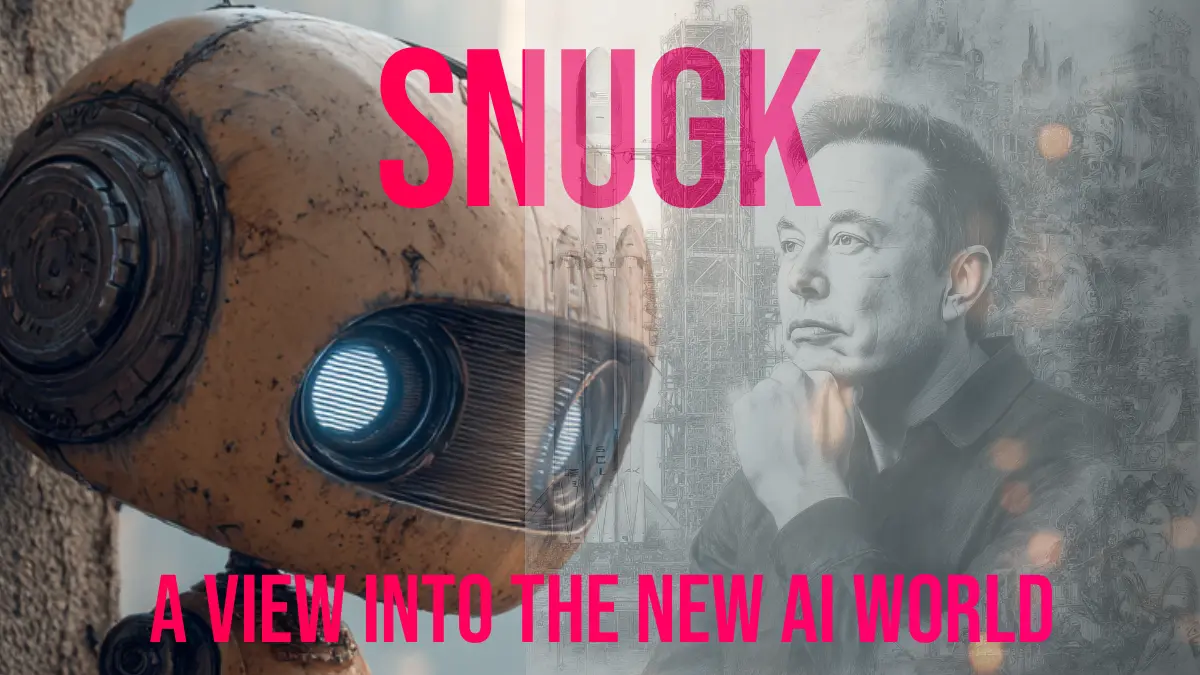Source: YouTube | All-In Podcast
Hey folks, if you’re into mind-bending tech updates mixed with some raw takes on humanity’s future, buckle up. I recently dove into a fascinating interview video from what seems like the All-In Podcast or a similar conference chat with Elon Musk. Fresh off his time in Washington (which he calls “unfixable”), Elon joins from Tesla’s Palo Alto HQ to spill the beans on everything from game-changing robots to space ambitions—and yeah, a stark warning about civilization’s slide. It’s equal parts inspiring and sobering, like a sci-fi novel come to life. Let’s break it down.
The Robot Revolution: Optimus Could Change Everything
Elon doesn’t mince words: Optimus, Tesla’s humanoid robot, might just be “the greatest product in the history of humanity.” We’re talking Version 3 on the horizon—a bot with human-level manual dexterity, an AI brain that gets real-world navigation, and mass production potential. Why the hype? Because no one else has cracked the code on those three pillars. Elon admits it’s eating up most of his mental bandwidth, tackling insane challenges like building a supply chain from scratch. Actuators? Non-existent off-the-shelf, so Tesla’s designing every motor, gearbox, and chip from physics first principles.
The star of the show? The hands. “Your hand is an incredibly sophisticated machine,” Elon says, evolved over eons for everything from threading needles to swinging bats. With 27-28 degrees of freedom per hand (muscles mostly in the forearm pulling tendons like puppet strings), it’s a marvel. At scale—say, a million units a year—Elon pegs the cost at $20,000–$25,000, including a pricey AI chip. Forget niche robots; this one’s built for the human world we already designed. Ranch owners, take note: You might snag one for chores sooner than you think. Compared to Cybertruck or Starship? “Significantly harder,” but Elon’s factory wizardry gives them an edge.
AI Superpowers: From Cars That “Feel Sentient” to Galaxy-Scale Smarts
Tesla’s not stopping at bots. Elon’s buzzing about their AI chips—AI5 is a monster 40x leap from AI4, thanks to tight hardware-software co-design. We’re talking 8x more compute, 9x memory, and fixes for bottlenecks like softmax operations (down from 40 emulation steps to a handful). Your Tesla? Expect Version 14 software soon: 10x parameters, reinforcement learning, and safety 2–10x better than a human driver. “Your car is going to feel like it is sentient by the end of the year,” Elon quips—it already does for some.
Over at xAI, Grok’s evolving fast. They’re using massive inference compute to scrub human knowledge (think Wikipedia, books, PDFs) of lies and gaps, rewriting it for truth. “Grokpedia” anyone? Elon’s mulling publishing corrected versions to fight bias—Wikipedia’s a “constant war” of activists. On scaling: Doubling compute doesn’t double IQ, but 10x might. Human smarts plateaued with falling birth rates; AI’s just ramping up, potentially harnessing the sun’s (or galaxy’s) power. It’s not a finish line—it’s escalating consciousness.
Starlink: Ditch Verizon, Go Global
Tired of spotty cell service? Elon’s dropping $17 billion on spectrum to beam Starlink straight to your phone—no antenna needed. In two years, modified handsets and satellites will handshake for high-bandwidth video anywhere (indoors too, unless you’re in a Faraday cage). “How many of you want a Starlink phone?” Elon asks the crowd—hands shoot up. It’s not killing carriers (they’ve got spectrum), but imagine one global account for home WiFi, mobile, and roaming from the US to India. Couch change for Elon? Absolutely.
Rockets to the Stars: Starship’s Reusability Breakthrough
SpaceX is pushing boundaries. After a recent Starship mishap, the team bounced back lightning-fast—regulatory reviews and all—for the next flight. Version 3? A beast with Raptor 3 engines, hauling 100+ tons to orbit fully reusable (five times Falcon Heavy’s payload). The big hurdle: A heat shield that survives reentry without shuttle-style nine-month fixes. “No one’s ever made a fully reusable orbital heat shield,” Elon notes—it’s physics, materials, and engineering rolled into one. Full booster-and-ship catches? Next year. “One of the hardest engineering problems ever,” but with the “most talented group of rocket engineers,” they’re podium contenders.
The West’s “Suicide”: Birth Rates, Borders, and a Call for Optimism
Things get real when Elon turns to society. The US national debt’s interest alone tops the defense budget—AI and robots might save us, or we’re “toast.” But the West? “Actions indistinguishable from suicide.” Declining birth rates (he’s all-in on reversing them), open borders eroding cultures (Europe’s indigenous vibes at risk), unaddressed crime (like that tragic subway case ignored by media)—it’s a spiral. “Having a child is an act of optimism,” Elon says. Europe’s pessimism? Decades deep. Religion filled the hope void once; now it’s “woke mind virus” dystopias.
His fix? A “philosophy of curiosity.” Probe the universe—standard model physics? Big Bang origins? Black hole simulation? AI and stars will unlock answers, sparking wonder. Like Hitchhiker’s Guide: The universe is the answer; what’s the question? We need optimism to boost kids and explore, from lunar bases (for ancient moon rocks) to a self-sustaining Mars city in 25–30 years. Exponential Starship shipments every two years could make us multiplanetary, dodging Earth dooms like WWIII or asteroids. Moral authority on Mars? Secondary to survival.
Elon wraps with fire: Humanity’s at a fork—ascend to the stars or descend. With Optimus, AI, Starlink, and Starship, he’s betting on ascent. If this fires you up, dive into the full video—it’s a roadmap for what’s next. What’s your take?
